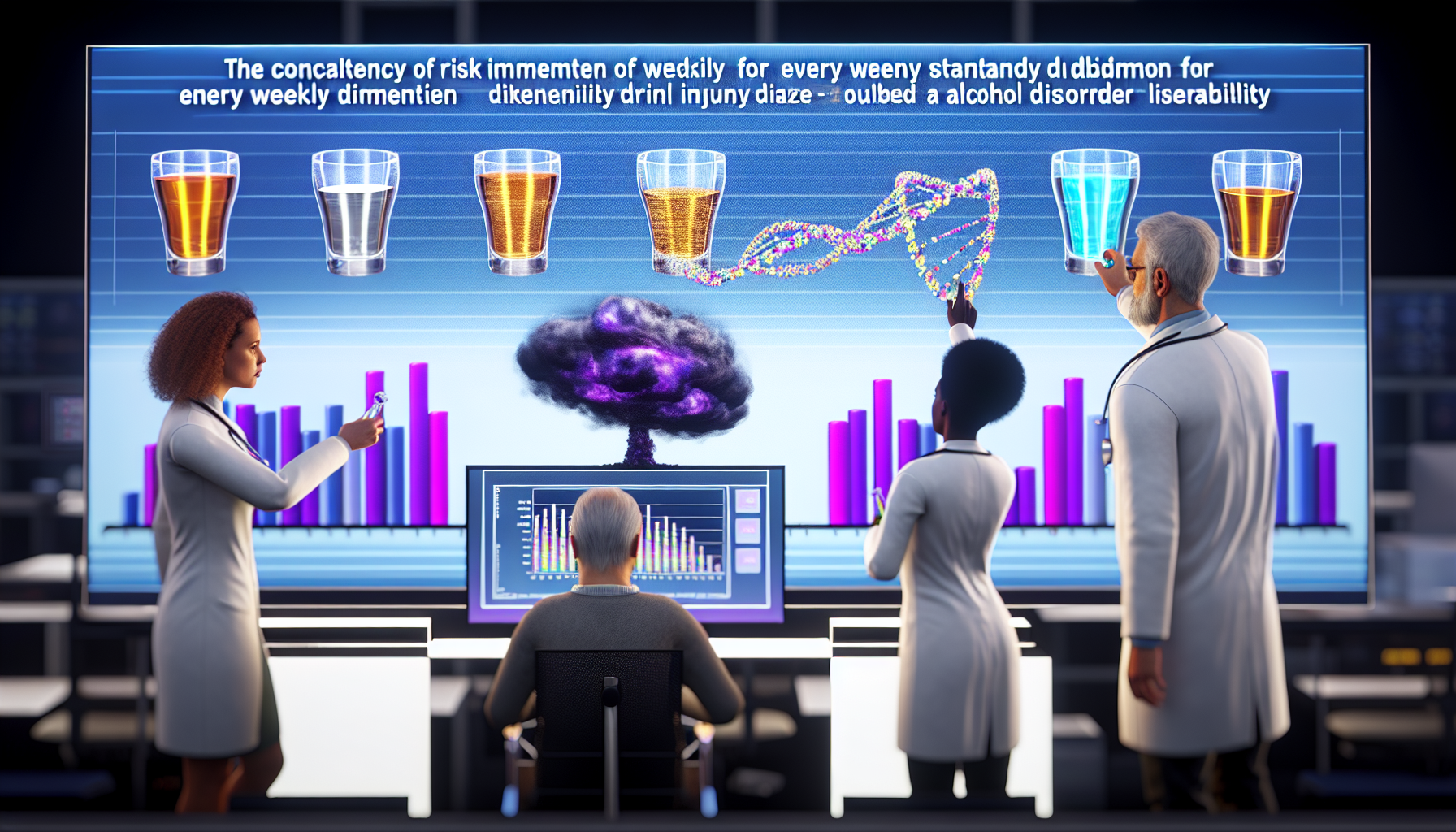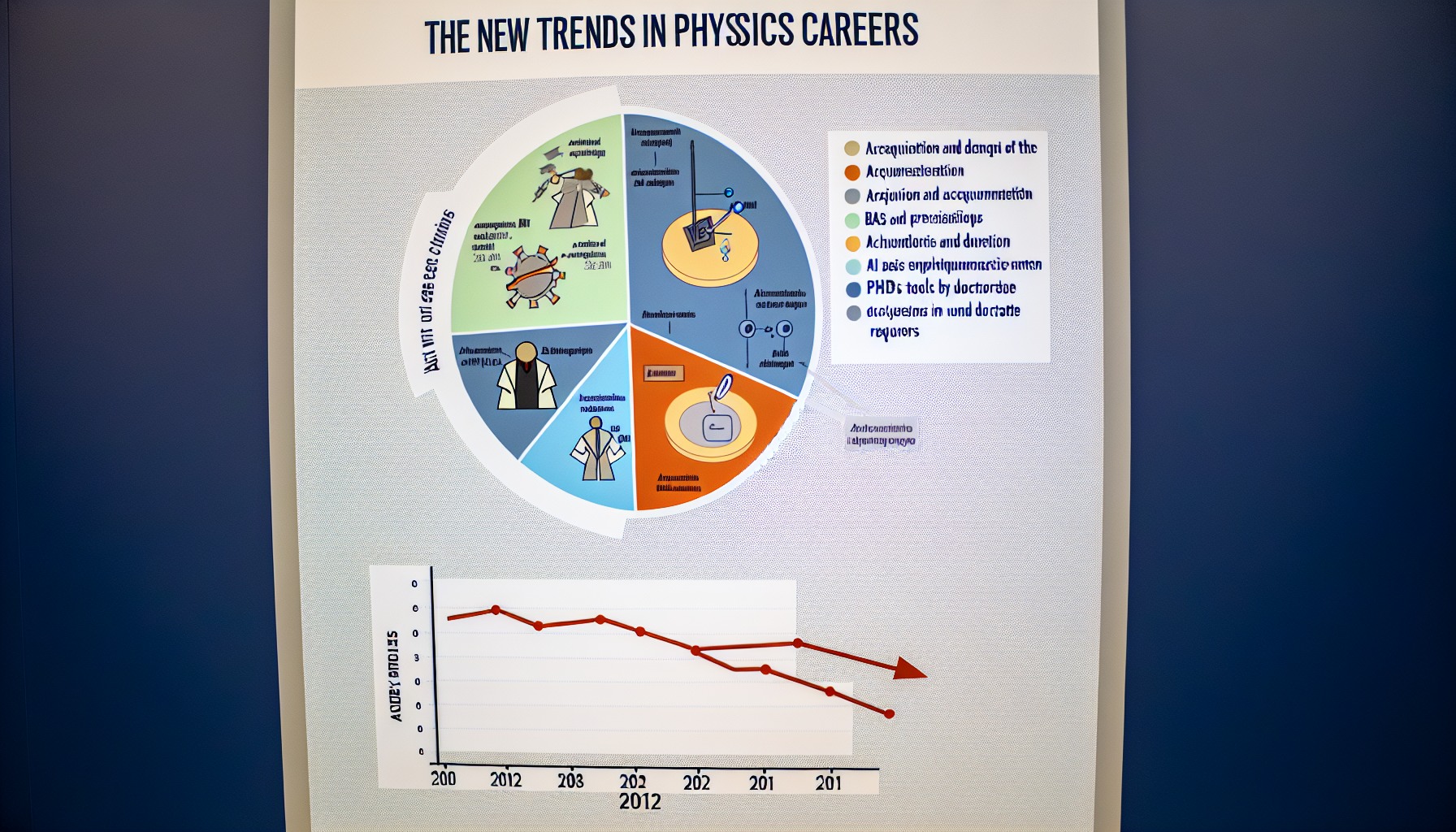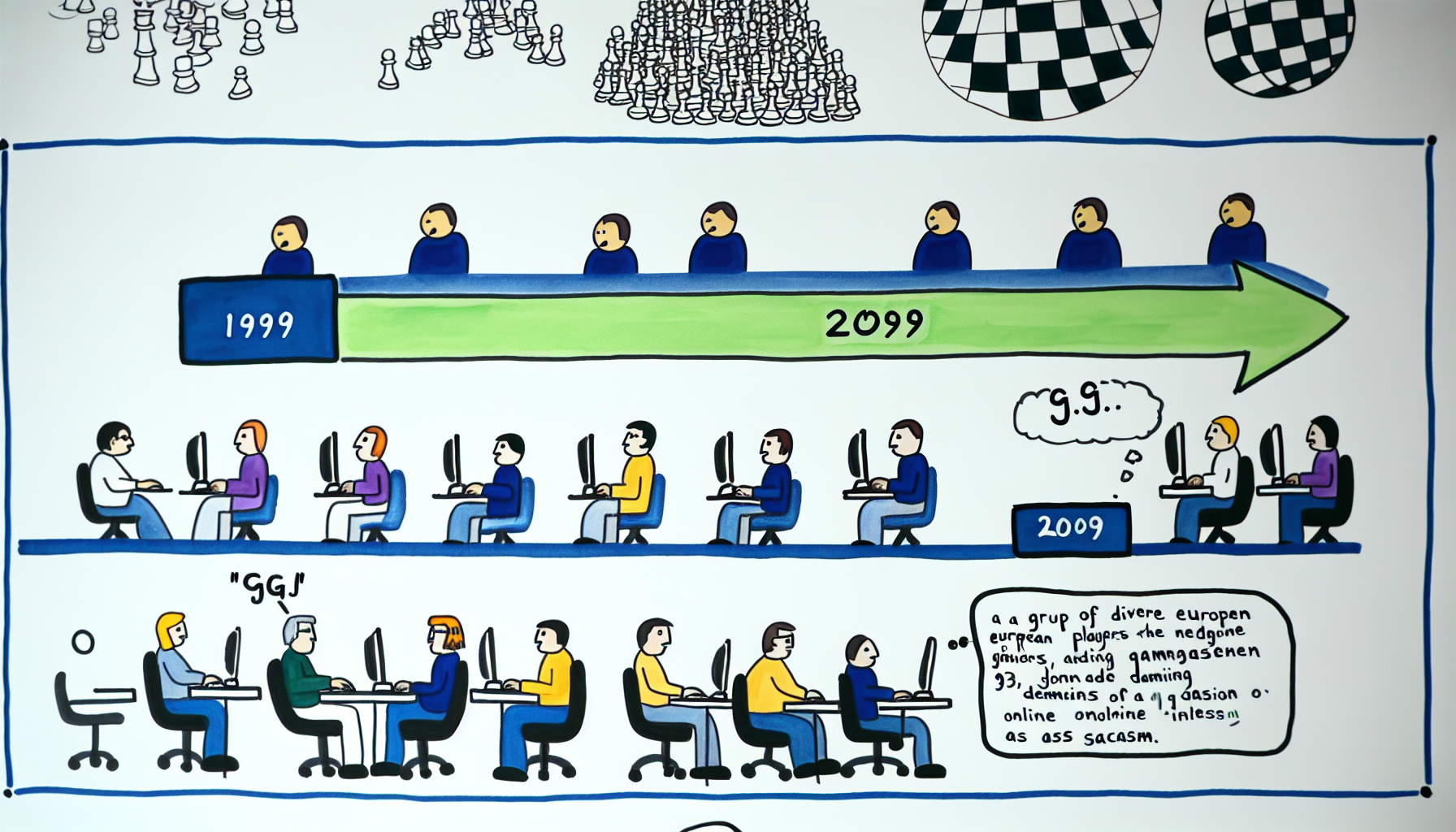Even light alcohol drinking raises dementia risk, according to the largest genetic analysis to date, sharpening the alcohol dementia debate. The international team pooled data on 559,559 adults and identified 14,540 dementia cases across diverse populations. Using Mendelian randomisation and complementary observational designs, the researchers found a steady, dose–dependent risk increase with alcohol, including a 15% higher dementia risk per one standard deviation increase in log drinks per week and no protective effect at lower intakes [1][3].
Key Takeaways
– Shows a 15% higher dementia risk per 1 SD increase in log drinks/week among 559,559 adults, including 14,540 diagnosed dementia cases. – Reveals a 16% higher risk with a twofold increase in genetic liability to alcohol use disorder, supporting a dose–response causal signal. – Demonstrates heavy drinking over 40 drinks/week and alcohol dependence associate with 41–51% higher dementia risk in observational analyses. – Indicates no protective effect of light drinking; dementia risk rose steadily with intake, contradicting earlier U-shaped observations at lower levels. – Suggests prior ‘moderate drinking’ benefits reflect reverse causation, with reduced intake preceding diagnoses in analyses of 559,559 participants.
What this alcohol dementia analysis found
Published in BMJ Evidence-Based Medicine in September 2025, the study synthesised evidence from cohort, case–control, and Mendelian randomisation (MR) approaches to test whether alcohol consumption affects dementia risk across different populations [1]. In all, 559,559 participants were analysed and 14,540 dementia cases were ascertained, making this the largest genetic-informed investigation of alcohol and dementia so far [1].
The genetic analyses focused on lifelong predisposition to drink more (instrumented by variants associated with alcohol intake) and on genetic liability to alcohol use disorder (AUD). Each one standard deviation increase in log-transformed drinks per week was linked to a 15% higher risk of dementia in the MR framework—an effect size that implies higher intake consistently raises risk rather than conferring any benefit at low levels [1][3]. A twofold increase in genetic liability to AUD was associated with a 16% higher dementia risk, further reinforcing a dose–response pattern [1][3].
The work integrated large UK and US datasets, including UK Biobank and the Million Veteran Program, and was highlighted in a BMJ summary on 23 September 2025 (DOI: 10.1136/bmjebm2025-113913), underscoring the breadth of evidence across settings and ancestries [2]. The authors conclude that reducing alcohol consumption is likely important for dementia prevention, given the absence of a protective threshold in the genetic evidence [2][3].
Alcohol dementia risk across intake levels
A key message is the monotonic—steadily increasing—relationship between alcohol intake and dementia risk. Past observational work often suggested a U-shaped curve, implying low or moderate drinking might be protective. In this analysis, however, MR estimates showed no benefit at lower intake; risk rose with higher consumption without any downward “dip,” a pattern the authors interpret as more consistent with causality than confounded observational findings [3][1].
Observational data within the study still detected higher risks at the extremes: heavy drinkers consuming more than 40 drinks per week, and people with alcohol dependence, had markedly increased dementia risk, estimated at roughly 41–51% higher compared with lower consumption groups [4]. While observational associations can be distorted by health status and lifestyle differences, the MR results—less prone to confounding—align with a dose–response picture in which more alcohol steadily elevates risk [1][3].
Critically, the researchers found no sign that light drinking protects brain health. The genetic instruments tied to drinking and to AUD liability both pointed in the same direction: greater exposure equals higher risk, across the distribution of intake [1][3].
Why genetic methods matter in alcohol dementia research
Mendelian randomisation leverages genetic variants as proxies for lifelong differences in alcohol consumption, creating a natural experiment that helps disentangle correlation from causation. Because genes are assigned at conception, they are not typically influenced by socio-behavioural factors that confound standard observational studies, such as diet, education, or preclinical illness that can change drinking habits [1].
That said, experts caution against over-interpretation. Statisticians and neuroscientists responding via the Science Media Centre note that genetically predicted intake is not identical to actual consumption at all life stages, and that pleiotropy (genes influencing multiple traits) can complicate causal inference [5]. They also stress the need for replication across ancestries and careful communication about what MR can and cannot prove in diverse populations [5]. In short, the genetic evidence strengthens the case that alcohol increases dementia risk, but precision about absolute risks and subgroup effects still requires further work [5].
How declining drinking can bias older studies
The study team highlights “reverse causation” as a major reason earlier research sometimes portrayed moderate drinking as protective. In the years before diagnosis, people in the early, unrecognised stages of dementia may cut back on alcohol because of evolving health, medication use, or caregiver advice. If such reductions are not properly accounted for, analyses can mistakenly attribute better brain outcomes to modest drinking rather than to underlying health changes among those who stop or reduce intake [2][3].
In this project, combining MR with longitudinal cohorts helped separate the effect of exposure from changes driven by disease onset. The authors report no protective effect at low intake once reverse causation is addressed, with risk increasing steadily as alcohol consumption rises [3][1]. This triangulation across methods adds weight to the conclusion that lower consumption is safer for brain health [2].
How these results compare with earlier studies
For years, some cohorts hinted that one or two daily drinks might be beneficial. The current evidence package challenges that notion. The Oxford Nuffield Department of Population Health summary emphasises that MR estimates rise monotonically with intake, arguing against a safe lower threshold or U-shaped benefit [3]. Additionally, reporting in The Independent noted that a vast genetic evidence base—GWAS data involving roughly 2.4 million individuals—showed no protective effect of light drinking, contradicting earlier, potentially confounded observational signals [4].
Observational findings still show that very heavy drinking and alcohol dependence are hazardous, with 41–51% higher dementia risk in those groups; the new contribution is clarity that “light” or “moderate” drinking is not protective when assessed with genetic methods less prone to bias [4][1]. On balance, the totality of evidence is shifting away from the old “a little is good” narrative toward a simpler message: less is better for long-term cognitive health [3][2].
Implications for individuals and policy
From an individual perspective, the findings suggest there is no level of alcohol intake that improves dementia outcomes; risk increases in a dose–response fashion from low to high intake. That does not mean every person who drinks lightly will develop dementia, but it does mean that reducing consumption should lower risk on average, judging by the genetic and multi-cohort estimates [3][1]. The authors explicitly conclude that cutting back on alcohol could be important in preventing dementia, a message echoed in related BMJ communications [2].
For clinicians and policymakers, the results argue for integrating brain health into alcohol harm frameworks, which traditionally focus on cancer, cardiovascular disease, liver disease, injuries, and mental health. Messaging may need to shift from promoting “safe” lower levels to emphasising that lower is generally better, while acknowledging uncertainties in absolute risk and variations by age, sex, and genetic background [2][5]. Further research across ancestries, and with careful measurement of life-course drinking patterns, will refine risk estimates and inform guidance [5][1].
What this means for the alcohol dementia debate now
The biggest contribution of this study is scale and methodological diversity: 559,559 participants, 14,540 dementia cases, genetic instruments for intake and AUD liability, and replication across major datasets such as UK Biobank and the US Million Veteran Program [1][2]. The MR results—a 15% higher risk per one standard deviation in log drinks/week and a 16% higher risk for doubled AUD liability—line up with observational evidence showing sharply elevated risk in very heavy drinkers, but they remove the illusion of benefit at lower levels [3][4].
The cautious takeaway, endorsed by independent experts, is that alcohol increases dementia risk and that “light” drinking is not protective; reductions in intake are therefore a prudent strategy for brain health while research continues to refine absolute risks in different populations [5][2].
Sources:
[1] BMJ Evidence-Based Medicine / PubMed – Alcohol use and risk of dementia in diverse populations: evidence from cohort, case–control and Mendelian randomisation approaches: https://pubmed.ncbi.nlm.nih.gov/40987604/
[2] MedicalXpress (BMJ summary) – Drinking any amount of alcohol likely increases dementia risk: https://medicalxpress.com/news/2025-09-amount-alcohol-dementia.html [3] Nuffield Department of Population Health, University of Oxford – Any level of alcohol consumption increases risk of dementia: www.ndph.ox.ac.uk/news/any-level-of-alcohol-consumption-increases-risk-of-dementia” target=”_blank” rel=”nofollow noopener noreferrer”>https://www.ndph.ox.ac.uk/news/any-level-of-alcohol-consumption-increases-risk-of-dementia
[4] The Independent – Drinking any amount of alcohol may increase dementia risk: www.independent.co.uk/news/health/drinking-alcohol-dementia-risk-study-b2832174.html” target=”_blank” rel=”nofollow noopener noreferrer”>https://www.independent.co.uk/news/health/drinking-alcohol-dementia-risk-study-b2832174.html [5] Science Media Centre – Expert reaction to study looking at the association between any amount of alcohol consumption and risk of dementia: www.sciencemediacentre.org/expert-reaction-to-study-looking-at-the-association-between-any-amount-of-alcohol-consumption-and-risk-of-dementia/” target=”_blank” rel=”nofollow noopener noreferrer”>https://www.sciencemediacentre.org/expert-reaction-to-study-looking-at-the-association-between-any-amount-of-alcohol-consumption-and-risk-of-dementia/
Image generated by DALL-E 3









Leave a Reply